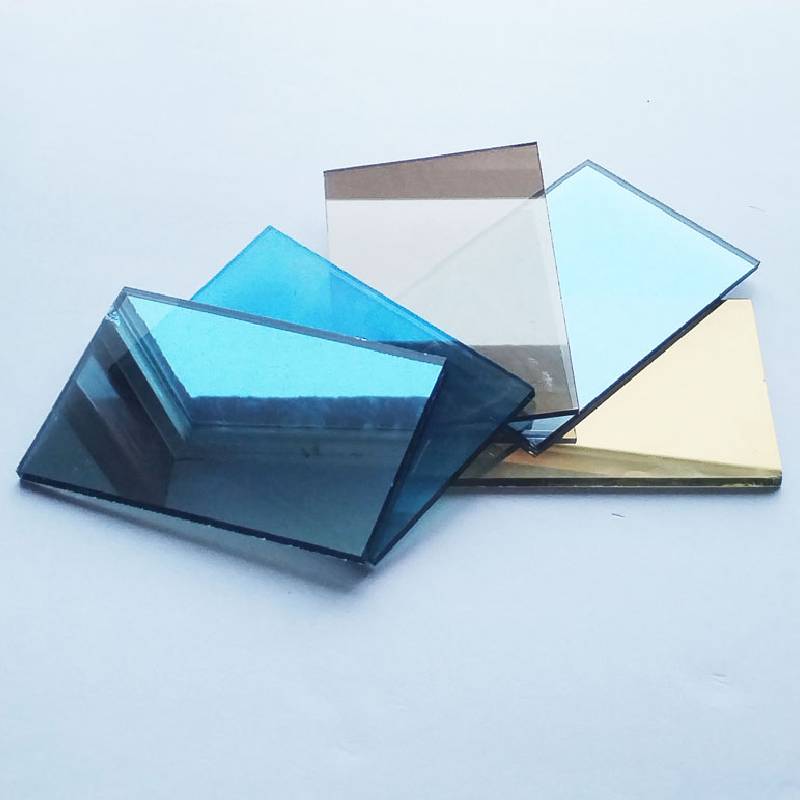Understanding Float Glass A Transparent Marvel
Float glass, often referred to as float annealed glass, is a remarkable material widely used in construction, architecture, and various industrial applications. Its unique properties arise from a fascinating manufacturing process that gives it a smooth, flat surface and unparalleled clarity. In this article, we will explore the characteristics of float glass, its applications, and its significance in modern design.
The Manufacturing Process
The name float glass derives from the process used to manufacture it. The key components of float glass are silica sand, soda ash, and limestone, which are melted together at high temperatures to form molten glass. This molten glass is then carefully floated on a bed of molten tin, allowing it to spread evenly into a flat, smooth sheet. This floating process eliminates impurities and disturbances, producing a product with exceptional flatness and surface quality.
The glass is then cooled in a controlled environment, a stage known as annealing. This cooling process relieves internal stresses within the glass, making float glass more resilient and easier to handle. The result is a clear, unobstructed view that is perfect for a variety of uses. The typical thickness of float glass sheets ranges from 2mm to 19mm, but it can be produced in various sizes and thicknesses to suit specific applications.
Characteristics of Float Glass
One of the most compelling characteristics of float glass is its clarity. Because it is produced without any distortion, float glass offers a nearly flawless view—making it ideal for windows and facades in both residential and commercial buildings. Additionally, float glass has a high level of optical transmittance, allowing natural light to penetrate while providing excellent thermal insulation.
Another significant property is its strength. While not as strong as tempered or laminated glass, float glass can withstand the rigors of daily wear and tear. It is important to note, however, that float glass can shatter upon strong impact; therefore, safety and security applications often require stronger alternatives.
float glass images
Float glass is also highly customizable. It can be coated, colored, or treated to enhance its performance. For instance, low-emissivity (Low-E) coatings can be applied to float glass to improve thermal efficiency, reflecting heat back indoors in the winter and keeping interiors cooler in the summer. This energy-efficient feature is especially beneficial in today’s architectural designs, focused on sustainability.
Applications of Float Glass
Float glass is predominantly used for windows, but its applications extend beyond this basic function. Architects and designers frequently incorporate float glass into modern building designs, utilizing it for
- Glass Facades Creating striking, contemporary exteriors that reflect the environment and allow natural light to flow through interiors.
- Glass Doors Enhancing accessibility while maintaining an aesthetic appeal.
- Interior Partitions Offering an open and airy feel, separating spaces without closing them off completely.
- Furniture Used in coffee tables, shelves, and countertops to add elegance and functionality.
The automobile industry also employs float glass in vehicle windows, where clarity is essential for safety and driver visibility. Furthermore, float glass finds its way into the production of mirrors, display cases, and even solar panels, showcasing its versatility.
Conclusion
Float glass represents a blend of functionality, aesthetic appeal, and innovative manufacturing practices. Its clarity and flatness make it an essential material in modern architecture and design, proving that even the most straightforward materials can have extraordinary qualities. As sustainability and energy efficiency become increasingly pivotal in construction, the role of float glass will undoubtedly expand, affirming its status as a fundamental building block in our transparent world. By appreciating the science and artistry behind float glass, we gain a deeper understanding of its significance in our everyday lives.
 Afrikaans
Afrikaans  Albanian
Albanian  Amharic
Amharic  Arabic
Arabic  Armenian
Armenian  Azerbaijani
Azerbaijani  Basque
Basque  Belarusian
Belarusian  Bengali
Bengali  Bosnian
Bosnian  Bulgarian
Bulgarian  Catalan
Catalan  Cebuano
Cebuano  Corsican
Corsican  Croatian
Croatian  Czech
Czech  Danish
Danish  Dutch
Dutch  English
English  Esperanto
Esperanto  Estonian
Estonian  Finnish
Finnish  French
French  Frisian
Frisian  Galician
Galician  Georgian
Georgian  German
German  Greek
Greek  Gujarati
Gujarati  Haitian Creole
Haitian Creole  hausa
hausa  hawaiian
hawaiian  Hebrew
Hebrew  Hindi
Hindi  Miao
Miao  Hungarian
Hungarian  Icelandic
Icelandic  igbo
igbo  Indonesian
Indonesian  irish
irish  Italian
Italian  Japanese
Japanese  Javanese
Javanese  Kannada
Kannada  kazakh
kazakh  Khmer
Khmer  Rwandese
Rwandese  Korean
Korean  Kurdish
Kurdish  Kyrgyz
Kyrgyz  Lao
Lao  Latin
Latin  Latvian
Latvian  Lithuanian
Lithuanian  Luxembourgish
Luxembourgish  Macedonian
Macedonian  Malgashi
Malgashi  Malay
Malay  Malayalam
Malayalam  Maltese
Maltese  Maori
Maori  Marathi
Marathi  Mongolian
Mongolian  Myanmar
Myanmar  Nepali
Nepali  Norwegian
Norwegian  Norwegian
Norwegian  Occitan
Occitan  Pashto
Pashto  Persian
Persian  Polish
Polish  Portuguese
Portuguese  Punjabi
Punjabi  Romanian
Romanian  Russian
Russian  Samoan
Samoan  Scottish Gaelic
Scottish Gaelic  Serbian
Serbian  Sesotho
Sesotho  Shona
Shona  Sindhi
Sindhi  Sinhala
Sinhala  Slovak
Slovak  Slovenian
Slovenian  Somali
Somali  Spanish
Spanish  Sundanese
Sundanese  Swahili
Swahili  Swedish
Swedish  Tagalog
Tagalog  Tajik
Tajik  Tamil
Tamil  Tatar
Tatar  Telugu
Telugu  Thai
Thai  Turkish
Turkish  Turkmen
Turkmen  Ukrainian
Ukrainian  Urdu
Urdu  Uighur
Uighur  Uzbek
Uzbek  Vietnamese
Vietnamese  Welsh
Welsh  Bantu
Bantu  Yiddish
Yiddish  Yoruba
Yoruba  Zulu
Zulu 

